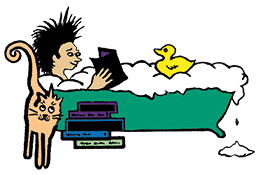Implausible Professions: Arguments for Pluralism and Autonomy in Psychotherapy and Counselling
Author(s): Richard House
The first edition of Implausible Professions, published in 1997, foretold many of the core issues around therapy 'professionalisation' that have come to dominate the field in recent years as the shadow of possible state regulation has loomed ever larger over the psy landscape. In the current highly charged context, this new edition could not be better timed. The many and diverse chapters, written by a mix of well-known names and new arrivals, are as fresh and relevant today as they were in the 1990s. The back cover of the first edition described how the contributors to Implausible Professions 'throw into question many of the most taken-for-granted assumptions on which the professionalisationA" and commodification of psychotherapy and counselling are based. The essays display the creative pluralism and passionate vitality which typify the best aspects of therapeutic work.' This edition contains a completely new editorial Introduction and Conclusion, updating the story to 2011. For those engaging with the politics of professionalisation for the first time, or wanting to refresh themselves about the reasons why counselling and psychotherapy are in principle 'implausible professions', this text is even more indispensable than it was in 1997.
Product Information
The price of the book is worth it for the wisdom of the introduction let alone the other thoughtful pieces in where and how we - who seek to understand people - have moved forward. Read it. Susie Orbach, author of 'Fat Is A Feminist Issue' (1982) and 'Bodies: Big Ideas' (2009) An excellent book that shows the astonishing diversity of therapeutic practice and makes clear why the field cannot be regulated by the state without losing its soul. An invaluable book in today's climate of control. Paul Gordon, Chair of the Philadelphia Association and author of 'The Hope of Therapy' and 'An Uneasy Dwelling' This was, when first published, an invaluable conceptual and practical resource for working against the grain of the 'professionalisation' of our care for each other, and now, in this second edition, doubly so! Prof Ian Parker, Discourse Unit, Manchester Metropolitan University, author of 'Lacanian Psychoanalysis: Revolutions in Subjectivity'
Richard House Ph.D. is Senior Lecturer in Psychotherapy and Counselling, Department of Psychology and the Research Centre for Therapeutic Education, Roehampton University. A trained counsellor and psychotherapist and a therapy practitioner since 1990, his books include In, Against and Beyond Therapy (PCCS, 2010), Therapy Beyond Modernity (Karnac, 2003), Against and For CBT (co-editor Del Loewenthal, PCCS, 2008) and Childhood, Well-being and a Therapeutic Ethos (co-editor Del Loewenthal, Karnac, 2009). Richard is a co-founder of the Independent Practitioners Network, in which he has participated since 1995, and of the Alliance for Counselling and Psychotherapy against State Regulation. Richard is also a trained Steiner Kindergarten and class teacher, co-founding the 'Open EYE' early childhood campaign in 2007, and, with author Sue Palmer, co-orchestrating the two press Open Letters on 'toxic childhood' and 'play' in 2006 and 2007, helping to precipitate a global media debate about the state of childhood in modern technological culture. Nick Totton is a psychotherapist and trainer in private practice in Leeds, UK. Trained originally as a Reichian therapist, he now practises and teaches his own synthesis, Embodied-Relational Therapy, drawing on psychoanalysis and Process Oriented Psychology as well as on Reichian ideas. He has published The Water in the Glass: Body and Mind in Psychoanalysis (Rebus Press); Psychotherapy and Politics (Sage); Character and Personality Types (Open University Press, with Michael Jacobs; and Body Psychotherapy: An Introduction (Open University Press), as well as editing Psychoanalysis and the Paranormal: Lands of Darkness (Karnac). He is editor of the journal Psychotherapy and Politics International (Wiley). Nick is in a prospective member group (the Burley Group) of the Independent Practitioners' Network
Introduction to extended 2nd edition Introduction to 1st edition The politics of transference, John Heron In the shadow of accreditation, David Wasdell Too vulnerable to choose?, Richard Mowbray Reflections on fear and love in accreditation, Robin Shohet The dynamics of counselling research: a critical view, Richard House 'Audit-mindedness' in counselling, Richard House A case to answer, Richard Mowbray The myth of therapist expertise, Katharine Mair Training: a guarantee of competence? Richard House Inputs and outcomes: the medical model and professionalisation, Nick Totton Challenging the core theoretical model, Colin Feltham Not just a job: psychotherapy as a spiritual and political practice, Nick Totton The accountable psychotherapist: standards, experts and poisoning the well, Brian Thorne Counselling in the UK: jungle, garden or monoculture? Denis Postle Psychotherapy and tragedy, David Smail The making of a therapist and the corruption of the training market, Guy Gladstone Uncovering the mirror: our evolving personal relationship with accreditation, Sue Hatfield & Cal Cannon Pluralism and psychotherapy: what is a good training? Andrew Samuels The teaching of psychotherapy, Peter Lomas Therapy in New Paradigm perspective: the phenomenon of Georg Groddeck, Richard House A self-generating practitioner community, John Heron Practitioner development through self-direction: The South West London College counselling courses, Val Blomfield Developing self-determination: self and peer assessment and accreditation at the Institute for the Development of Human Potential, Michael Eales The University of East Anglia Person-Centred Counselling training, Michael McMillan and Catherine Hayes Assessment tension on a university-based counselling training course course, Jill Davies The Independent Practitioners Network: a new model of accountability, Nick Totton Self and peer assessment: a personal story, Juliet Lamont & Annie Spencer Stepping off the 'Game-Board': a new practitioner's view of accreditation, Marion Hall Learning by mistake: client-practitioner conflict in a self-regulated network, Nick Totton Participatory ethics in a self-generating practitioner community, Richard House Conclusion to 1st edition Conclusion to 2nd extended edition
General Fields
- :
- : PCCS Books
- : PCCS Books
- : 01 February 2011
- : United Kingdom
- : books
Special Fields
- : Richard House
- : Paperback
- : 2nd Revised edition
- : 616.891402341


